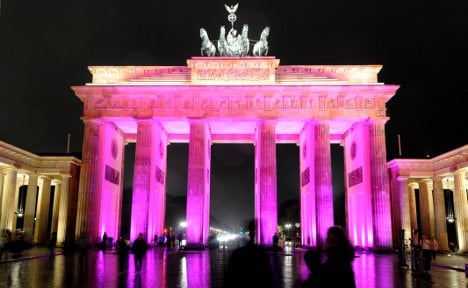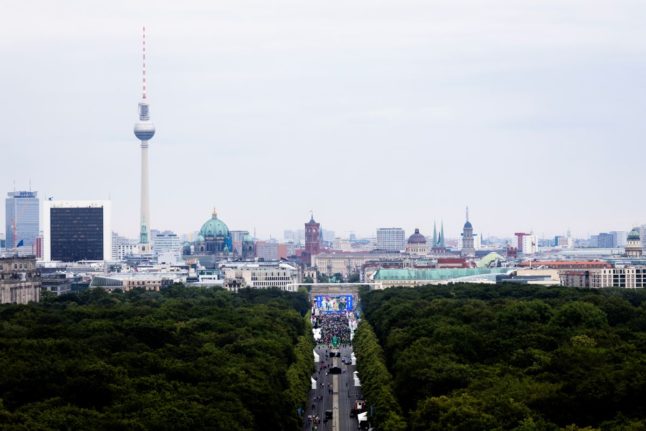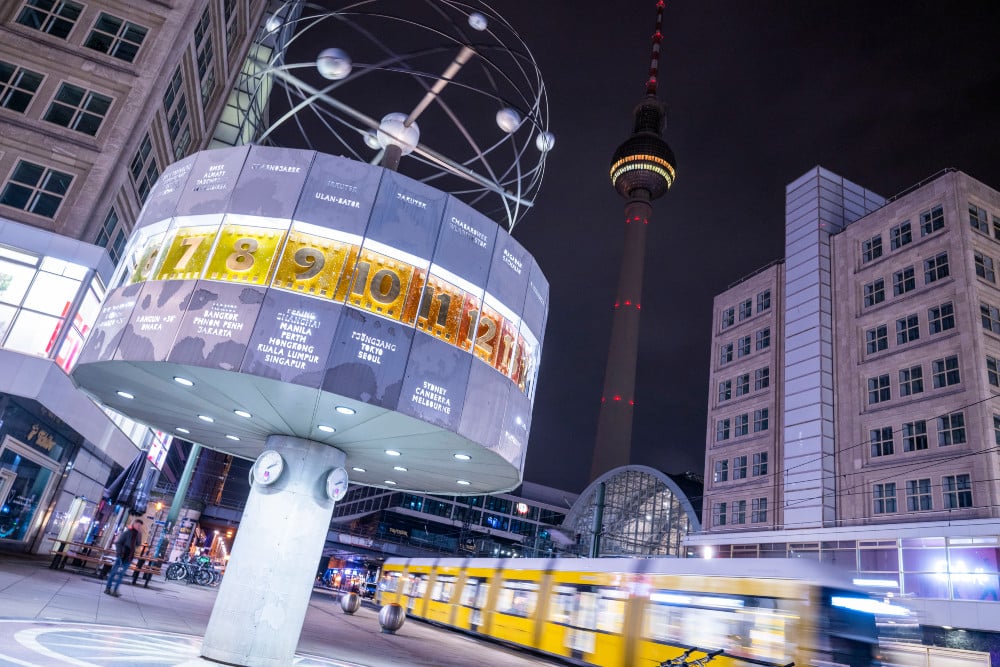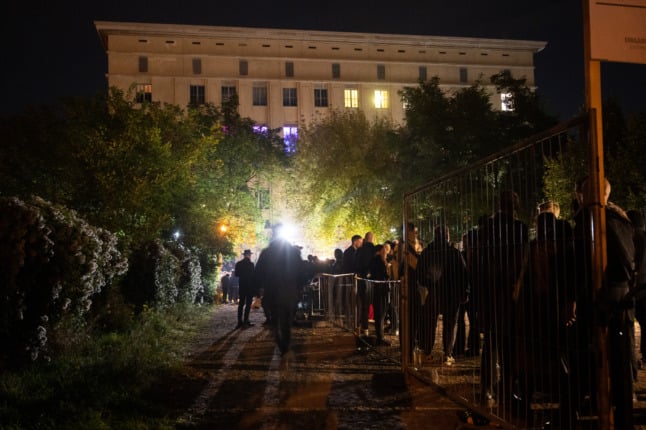The city centre is alive with street performers and music, as revellers hit the streets to admire the city’s buildings in a completely different light. Illuminated fountains and trees are also adding to the festive atmosphere.
See our special Festival of Lights photo gallery
The Berlin Cathedral’s facade has become a giant multi-coloured chameleon, while vines creep up a strangely purple TV tower and a giant mask, with faces projected onto it looks down menacingly onto Potsdamer Platz.
Hundreds of thousands of visitors are expected at the increasingly popular festival this year, Many of whom have been getting on bikes, ‘LightShips’ or the ‘LightLiner’ bus as an alternative way to enjoy the installations.
Events over the week include an open day, where visitors get the chance to look around buildings normally shut at night, and a night-time 10-kilometre ‘Light Run’ on 22 October.
The Local/jcw





 Please whitelist us to continue reading.
Please whitelist us to continue reading.
Member comments